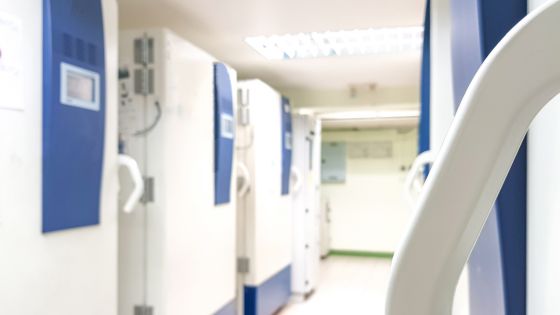In laboratory settings, maintaining proper storage conditions is crucial for the integrity and longevity of valuable specimens, samples, and reagents. Ultra-low temperature storage, characterised by extremely low temperatures, is vital in preserving sensitive materials’ viability, stability, and quality. It is made possible with the use of an ultra low freezer.
It is a specialised unit used in laboratories to maintain extremely low temperatures to preserve valuable biological samples, specimens, and other temperature-sensitive materials. These freezers are designed to operate at temperatures typically ranging from -80°C (-112°F) to -150°C (-238°F), providing an environment that slows down biological activities and prevents degradation of samples.
This blog can explore the importance of the same and its significant impact on scientific research, sample integrity, and the advancement of various fields.
The Critical Role of Cold Storage
Cold storage solutions are essential for laboratories across diverse disciplines, including biology, medicine, genetics, and pharmaceutical research. These specialised units, known for their frigid temperatures, provide an environment conducive to preserving samples, cell lines, biological materials, and other temperature-sensitive substances.
Protecting Sample Integrity and Viability
An ultra low freezer is vital for maintaining the integrity and viability of valuable samples. By subjecting samples to shallow temperatures, biological activities slow down, preventing degradation and extending their shelf life. It is crucial for long-term preservation, allowing researchers to access viable samples for experiments, analysis, and future studies.
Ensuring the Stability of Reagents and Chemicals
Stability is paramount regarding reagents and chemicals used in laboratory experiments. Many compounds are susceptible to temperature fluctuations and can degrade rapidly if not stored appropriately. Freezing cold temperature storage units provide the stability necessary to maintain the quality and efficacy of reagents, ensuring reliable and reproducible experimental results.
Safeguarding Valuable Research
In research laboratories, years of meticulous work and resources go into generating and preserving valuable data and samples. The ultra-low temperature unit safeguards against unforeseen events like equipment failures, power outages, or natural disasters. With backup power and advanced temperature monitoring systems, these storage units protect research investments and preserve irreplaceable samples and data.
Enabling Long-Term Studies and Collaborations
Long-term studies and collaborations often require storing and sharing samples across research institutions. The low-temperature unit allows for the safe transportation and preservation of samples, enabling researchers to collaborate, share resources, and conduct studies over extended periods. It facilitates scientific advancements and accelerates the pace of research.
Supporting Biobanking and Clinical Trials
Biobanks are crucial in storing biological materials for future research and clinical applications. Low-temperature units provide the necessary conditions for biobanking, ensuring the long-term viability and accessibility of valuable samples. Moreover, in clinical trials, maintaining the integrity of biological specimens is vital for accurate analysis and interpretation of results.
Compliance with Regulatory Standards
Laboratories must adhere to strict regulatory standards, particularly those involved in pharmaceutical research and clinical trials. Proper storage conditions are critical for compliance with regulatory requirements. By ensuring the integrity and stability of samples and reagents, laboratories can meet these standards and uphold the reliability and credibility of their research.
Conclusion
Therefore, a nultra-low freezer is an indispensable component of laboratory operations, enabling the preservation, stability, and accessibility of valuable samples and reagents. With the ability to maintain shallow temperatures, these storage units protect sample integrity, support long-term studies and collaborations, and safeguard research investments. It also serves as a critical tool for scientific breakthroughs, driving innovation and contributing to the progress of various fields of research and development in laboratories worldwide. By embracing this preservation unit, laboratories can ensure the reliability, reproducibility, and advancement of scientific research across various fields, paving the way for groundbreaking discoveries and advances.




















